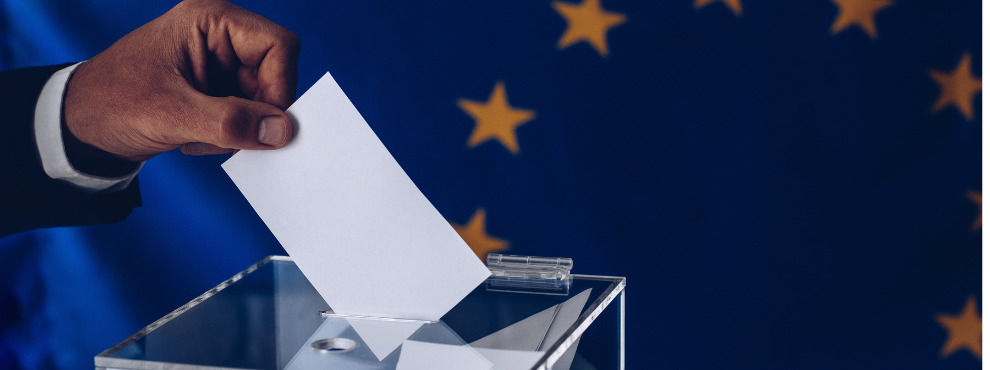European elections 2024: Why it is important to go to the polls
Prof Dr Nils-Christian Bormann, Professor of International Political Studies at the University of Witten/Herdecke with a classification.

The European elections will take place on 9 June 2024. Many young people, including students at Witten/Herdecke University (UW/H), will then go to the polls for the first time to elect the members of the European Parliament, which represents the interests of EU citizens at European level. Participation in the election is of great importance, says Prof Dr Nils-Christian Bormann. He is an expert in international politics at the UW/H and encourages everyone who is allowed to do so to cast their vote.
"If the EU didn't exist, we would be poorer, be able to travel less and more complicated, probably have more disputes between countries, fewer fish in the seas and only a small amount more self-determination," says Prof Dr Nils-Christian Bormann. By actively participating in the European elections, we all have the opportunity to help shape the outcome and thus decide, for example, what happens to personal data or how climate change should be combated - because the EU Parliament decides on these things together with the government representatives of the EU member states. "With your vote, you can also send a clear signal against extremist tendencies. Going to the polls gives you the opportunity to vote in favour of the European idea," says Nils-Christian Bormann.
Let's Europe - changing more together
On the initiative of the Ruhr Regional Association (RVR), cities and districts, educational institutions, companies and associations are involved in the large-scale "Let's Europe" campaign for the European elections. Witten/Herdecke University has joined this initiative to emphasise the importance of the EU and the European elections.
Programmes such as Erasmus+ and EU funding for research projects are hugely relevant for an internationally oriented and cosmopolitan educational institution such as UW/H. They play a decisive role in promoting research, teaching and innovation.
Further information:
Around 450 million EU citizens elect the EU Parliament, which represents their interests in the European Union. It is the only directly elected institution in the EU. The Parliament has a major influence on EU policy, the budget and legislation; as a result, it also influences the legislation of the member states and shapes the daily lives of people in the EU. It also elects the President and the members of the European Commission, which is accountable to the Parliament.
The EU Parliament is elected by the 27 member states on different days; this year's elections will take place from 6 - 9 June 2024. With 96 seats, Germany has the most MEPs in the Parliament, with voters not voting directly for individuals, but for the party.
Photos for download
Contact person

Svenja Malessa
Press Officer
Administration | Communication & Marketing
Alfred-Herrhausen-Straße 48
58455 Witten
Room number: 2.F05
